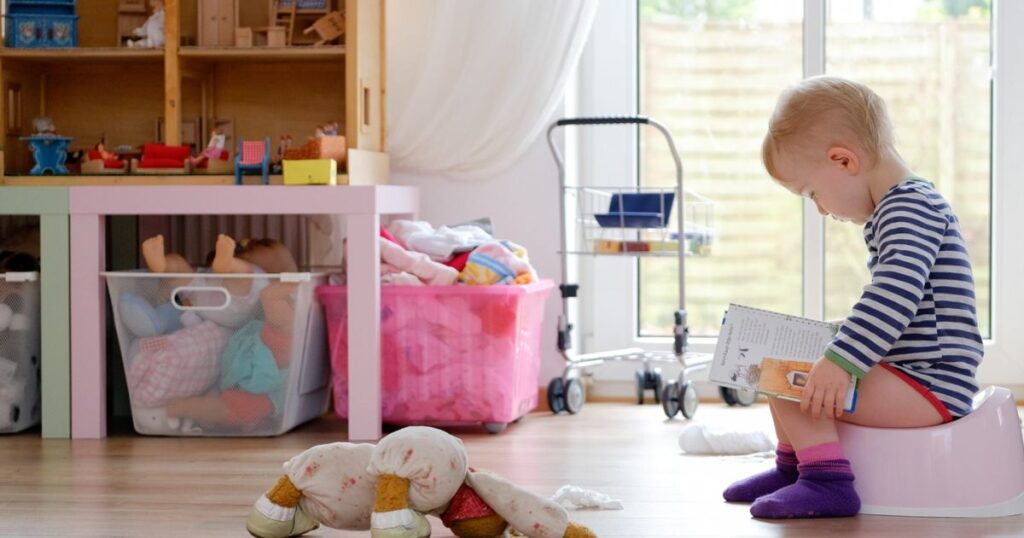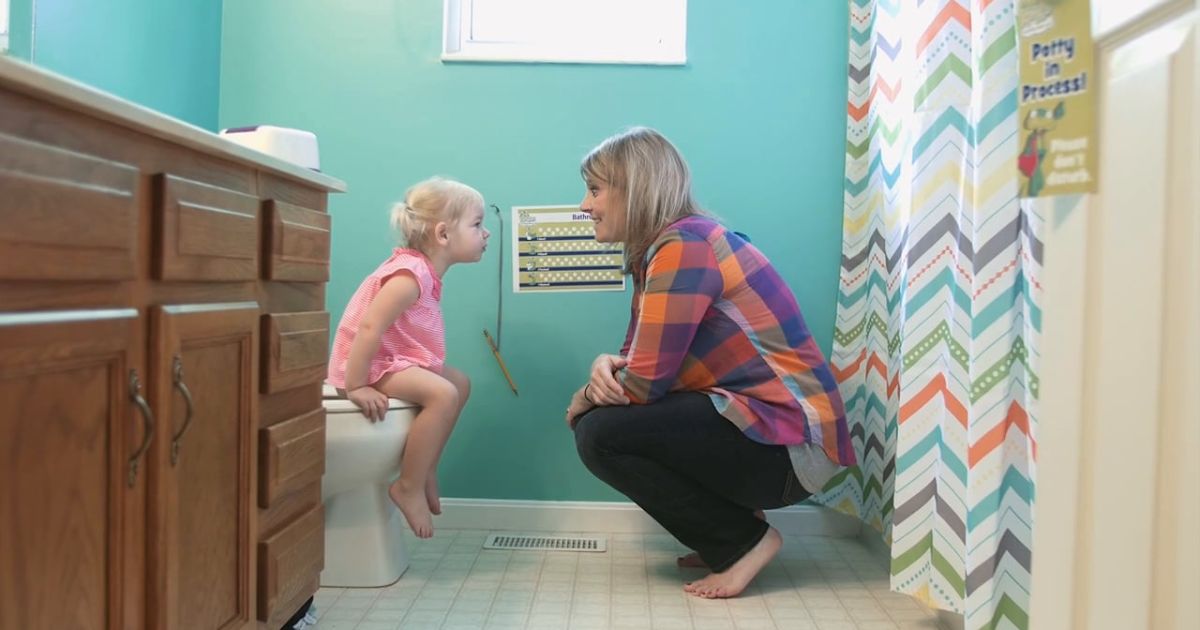The transition from infancy to preschool can be an exciting time for both parents and children. It marks the beginning of a child’s formal education and social interaction outside the home. However, as parents prepare their little ones for this significant step, they often wonder about the requirements for preschool admission. One common question that arises is whether a child must be potty trained to attend preschool. In this comprehensive guide, we will delve into this issue, addressing the importance of potty training, the policies of various preschools, tips for successful potty training, and more. By the end of this article, you will have a clearer understanding of the potty training expectations in preschools and how to navigate this crucial aspect of your child’s early education.
Why Potty Training Matters
Before we discuss whether potty training is a prerequisite for preschool, it’s important to understand why it matters and the significance it holds in a child’s development:
Independence and Self-esteem
Potty training is more than just a milestone; it’s a significant step towards independence for a child. Being able to use the toilet independently gives children a sense of accomplishment, which, in turn, boosts their self-esteem.
Social Skills
Potty training also plays a role in the development of social skills. Children learn about privacy, hygiene, and social norms surrounding bathroom etiquette. These lessons are important for smooth interactions with peers at preschool.
Health and Hygiene
Proper potty training promotes good hygiene practices, reducing the risk of infections and illnesses. It also helps children develop a routine for taking care of their bodily needs, which is essential for maintaining good health.
Potty Training Policies at Preschools
| Aspect | Description |
| Why Potty Training Matters | Independence and Self-esteem Social Skills<Health and Hygiene |
| Potty Training Policies at Preschools | General Guidelines Diaper Policies Pull-Ups vs. Underwear – Communication Special Needs Training Duration Licensing Requirements |
| Tips for Successful Potty Training | Start Early- Be Patient Create a Routine Use a Potty Chair Celebrate Achievements Communicate with the Preschool Be Consistent- Stay Informed |
| The Role of Preschool Teachers | Supportive Environment – Communication Positive Reinforcement – Role Modeling |
| The Exceptions: Special Needs and Developmental Delays | individualized Plans Additional Support- Sensory Sensitivities |
| FAQs | Do I need to potty train my child before sending them to preschool? What if my child has special needs or developmental delays with potty training? How can I help my child with potty training for preschool? |
| Conclusion | Summary of key points from the article |
Now, let’s explore the potty training policies at different preschools and whether it is a universal requirement:
General Guidelines
Preschools typically have general guidelines and expectations when it comes to potty training. While they may not explicitly require children to be fully potty trained, there are some common expectations. Parents often wonder, “Can You Potty Train A Chicken?” but when it comes to children, it’s important for them to have basic toileting skills, such as using the toilet or potty, understanding the need to go, and being able to communicate their needs effectively.
- Age-Related Expectations: Most preschools expect children to start the potty training process when they are around 2 to 2.5 years old. This means that children are encouraged to use the potty independently by the time they enroll in preschool.
- Communication Skills: Preschools often require children to have basic communication skills, such as being able to express when they need to use the bathroom.
- Independence: Preschools appreciate children who can independently manage their clothing, wash hands, and take care of basic hygiene after using the toilet.
Diaper Policies
While preschools may not demand full potty training, they often have specific diaper policies in place:
- Supplies: Parents may be required to provide an adequate supply of diapers and wipes for their child.
- Changing Areas: Preschools have designated changing areas for diaper changes. It’s essential for parents to follow the school’s procedures for diapering and changing.
- Toilet Training Progress: Preschools may keep a close eye on a child’s progress in toilet training and communicate with parents about any concerns.
Pull-Ups vs. Underwear
Many preschools prefer children to wear underwear rather than diapers or pull-ups, indicating their readiness for potty training. However, this varies from one preschool to another.
- Pull-Ups: Some preschools accept children wearing pull-ups, considering them as a transitional step towards full potty training.
- Underwear: Other preschools insist on children wearing underwear, expecting that they have achieved a certain level of potty training.
- Specific Requirements: It’s important to check with the specific preschool you’re interested in to understand their stance on pull-ups and underwear.
Communication
Communication is a key factor in potty training expectations at preschools. Here’s what you need to know:
- Open Communication: Preschools appreciate open and transparent communication with parents regarding their child’s potty training progress.
- Potty Training Plans: Some preschools may require parents to submit a potty training plan for their child, outlining the child’s current status and any special requirements.
Special Needs
Preschools understand that children may have special needs or developmental delays that can affect their potty training progress. In such cases, they often work closely with parents to create individualized plans and provide additional support.
Training Duration
It’s important to note that the duration of potty training can vary significantly from one child to another. Preschools are generally understanding of this and do not have strict deadlines for complete potty training. However, some may request that children show substantial progress before they can enroll.
Licensing Requirements
Preschools are subject to licensing requirements that may vary by state or country. These requirements can influence their potty training policies. It’s essential to check the specific regulations in your area and how they impact preschools.
Tips for Successful Potty Training

Whether your child’s preschool has strict potty training requirements or more lenient guidelines, here are some tips to help make the potty training process smoother:
Start Early
Begin the potty training process early, usually around 18 to 24 months. This allows your child to become familiar with the toilet and the concept of using it.
Be Patient
Potty training can be challenging, and accidents will happen. Be patient with your child and provide positive reinforcement when they make progress.
Create a Routine
Establish a consistent potty routine for your child. Regular bathroom breaks and toilet visits can help them understand the process.
Use a Potty Chair
Consider using a potty chair in addition to the regular toilet. Potty chairs are smaller and less intimidating for young children.
Celebrate Achievements
Celebrate each successful step in the potty training process. Small rewards and praise can motivate your child.
Communicate with the Preschool
Keep open lines of communication with your child’s preschool. Discuss your child’s progress, any concerns, and any specific needs they may have.
Be Consistent
Consistency is key. Use the same language and routine at home and at preschool to reinforce your child’s understanding of potty training.
Stay Informed
Stay informed about the preschool’s potty training policies and any updates or changes. This will help you align your efforts with the school’s expectations.
The Role of Preschool Teachers
Preschool teachers play a vital role in the potty training process. They are often well-trained in understanding the developmental needs of children and can provide valuable support and guidance. Here’s how teachers contribute to successful potty training:
Supportive Environment
Preschool teachers create a supportive and nurturing environment where children feel comfortable using the toilet. They provide reassurance and assistance when needed.
Communication
Teachers communicate with parents about their child’s progress and any challenges they may be facing. This open line of communication ensures that parents and teachers are on the same page.
Positive Reinforcement
Teachers use positive reinforcement, praise, and rewards to motivate children during the potty training process. This helps build children’s confidence and encourages them to take ownership of their bathroom needs.
Role Modeling
Teachers often serve as role models for children in the classroom. By demonstrating proper hygiene and bathroom etiquette, they help children learn these essential skills.
The Exceptions: Special Needs and Developmental Delays
In some cases, children may have special needs or developmental delays that can impact their potty training progress. In such instances, preschools are understanding and accommodating. Here’s what you need to know:
Individualized Plans
Preschools often work with parents to create individualized potty training plans for children with special needs or developmental delays. These plans address the child’s unique challenges and set achievable goals.
Additional Support
Preschools may provide additional support, such as extra supervision, specialized training, or access to resources like occupational therapists, to help children with special needs in their potty training journey.
Sensory Sensitivities
Some children with sensory sensitivities may find the potty training process overwhelming. In such cases, preschools adapt their strategies to create a sensory-friendly environment.
FAQs
Do I need to potty train my child before sending them to preschool?
While preschools often expect some level of potty training, it’s not always a strict requirement. Check with your chosen preschool for their specific guidelines.
What if my child has special needs or developmental delays with potty training?
Preschools are accommodating and create individualized plans and provide support for children with special needs during potty training.
How can I help my child with potty training for preschool?
Start early, maintain a consistent routine, communicate with the preschool, and be patient to help your child succeed in potty training.
Conclusion
In conclusion, while potty training is not always an absolute requirement for preschool enrollment, it is undeniably an important developmental milestone. Preschools typically have expectations for potty training readiness, including age-appropriate skills, communication abilities, and some level of independence. However, they also recognize that children progress at their own pace and may have individual needs and challenges.
As a parent, it’s crucial to be aware of your child’s preschool’s specific potty training policies and to maintain open communication with the school throughout the process. Remember that potty training is a journey, and with patience, consistency, and support from both home and school, your child can successfully navigate this essential aspect of their early education.
Ultimately, the goal of preschool is to provide a safe and nurturing environment for children to learn and grow. Potty training is just one part of that journey, and with the right approach, it can be a positive and empowering experience for both you and your child as they embark on their educational adventure.










